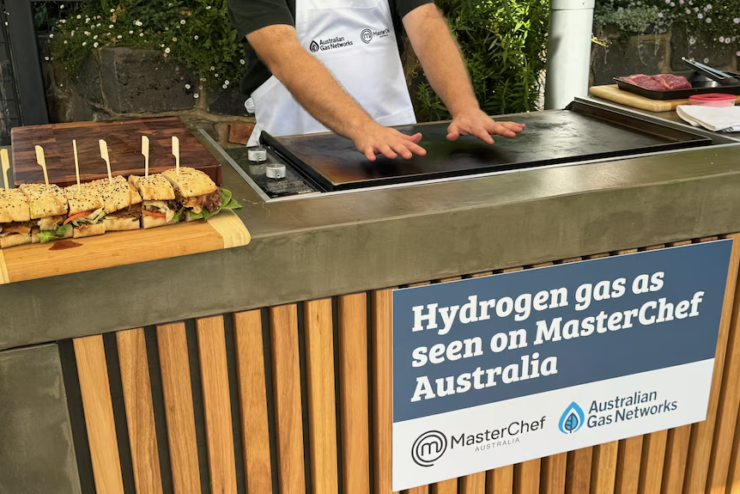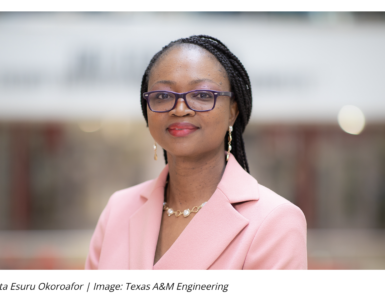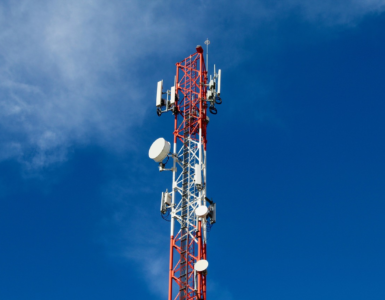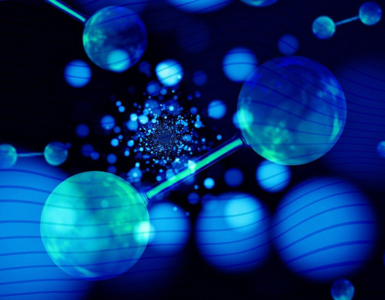MasterChef Australia promoting hydrogen and biomethane as alternative to gas cooking.
The popular cooking series MasterChef Australia is being criticised for doing a deal with “renewable gas” companies, with environmentalists dubbing the Network 10 show’s sponsorship deal to promote stovetop cooking as “greenwashing”.
The 16th Australian season of the globally franchised reality television show, where budding chefs compete against each other in judged cook-offs, premiered on Network 10 last night.
This season’s official sponsors include gas network operator Australian Gas Network (AGN), which is a subsidiary of Australian Gas Infrastructure Group (AGIG).
🔥 What about we co-host a webinar? Let's educate, captivate, and convert the hydrogen economy!
Hydrogen Central is the global go-to online magazine for the hydrogen economy, we can help you host impactful webinars that become a global reference on your topic and are an evergreen source of leads. Click here to request more details
AGIG owns and operates 35,000km of national distribution networks for the increasingly divisive fossil fuel, including in Victoria where gas connections were recently banned in newly built homes.
There, the state government is promoting the full electrification of households, such as the use of induction or other electric cooktops, over traditional gas flame cooking.
MasterChef Australia is filmed primarily in Victoria.
At an event yesterday promoting their new two-year relationship, AGIG representatives and Network 10’s owner Paramount unveiled a plan to continue stovetop flame cooking on the television series using low-emission alternatives to traditional gas.
This season, MasterChef contestants will compete in a barbecue challenge on grills powered by AGN-supplied hydrogen, and all cooktops used by the contestants will be powered by biomethane.
AGN advertisements about how “renewable gas” is “part of the big picture” for Australia’s energy transition also aired during MasterChef last night.
“See it in action on MasterChef Australia,” the adverts of people with flames cooking noted.
The deal to use low-emission gas on MasterChef Australia is being dubbed as a world first for the globally franchised TV show, which has now been licensed out in more than 50 countries.
Michael Stanford, the head of Network 10’s owner Paramount Australia, told the AGN event:
This world first is so exciting.
“It’s the start of a two-year partnership with AGN.
“Let’s create a first of its kind kitchen in Australia that we know will lead the way for new homes and commercial kitchens across the country.”
What’s the benefit of cooking with low-emission gas?
Biomethane is chemically the same as fossil fuel-derived gas but is derived from the processing of waste products, including that from humans, forestry and farming.
The biomethane being used by MasterChef comes from a demonstration facility in NSW owned by another gas network company, Jemena.
Its biomethane comes from sewerage, making the prime-time television show now technically powered by poo.
Hydrogen, meanwhile, is a close replacement for traditional fossil fuel-derived gas that, when made using renewable energy and electrolysis, is considered to be a green energy source.
The AGN-supplied hydrogen is made using power from the grid, with this offset through buying power from renewable energy generators.
At the AGN promotional event in Melbourne yesterday, a season three MasterChef runner-up was on hand to cook steak over a hydrogen barbecue.
As Michael Weldon explained, the heating temperature of hydrogen was slightly higher than traditional fossil fuel gas, but otherwise he said the cooking process was very much the same:
It’s an amazing fuel,” he said, while searing a scotch fillet.
“It’s very similar to cooking on a normal barbecue.”
Cooking tongs in hand, Mr Weldon also repeated a perception by some commercial chefs that cooking on electric stoves just isn’t the same or as powerful as flame-derived cooking.
He said that cooking with the heat of hydrogen was a way to continue cooking with a “sustainable” gas.
“I think it’s the future of cooking,” he said.
“I think it’s an exciting thing, and I’m really proud to be cooking with hydrogen.
“I’ve grown up always cooking on gas and I love cooking. I really like the heat that you get up the side of the pan that you don’t get with electric.
“Electric stoves need a lot more skill to cook with.”
Why is AGN promoting hydrogen and biomethane?
At the hydrogen barbecue event, AGIG spokesperson Cathryn McArthur said the deal with MasterChef was about helping Australians “see the benefits of carbon neutral gas”.
Cathryn McArthur, said:
We know Australians love their gas.
“With help from MasterChef, Paramount and Network 10, people are going to see the benefits of carbon-neutral gas on display over the next 12 weeks, right in their own living rooms as they watch MasterChef.
“It’s a practical demonstration of a low-carbon solution that can be delivered by existing gas networks as we transition to net zero.”
Yet the sponsorship deal is being slammed by the Grattan Institute think tank.
Its deputy program director for energy and climate, Alison Reeve, describes the push towards low-emission gas as a tactic utilised by the gas industry to keep pushing the use of its infrastructure, including gas pipes.
“This is really a process of trying to protect those assets for as long as they possibly can,” she said.
“They’re trying to hang on as long as possible.”
The Grattan Institute put out a report on hydrogen last year that concluded hydrogen would never economically stack up for most Australian households.
Ms Reeve told the ABC:
To make hydrogen cheap, you need to make electricity very, very, very cheap, because electricity is used to make hydrogen by splitting water into hydrogen and oxygen.
“And the thing is, that when electricity gets really cheap, sure your hydrogen gets cheaper, but that means the case for moving to electricity becomes even more compelling.
“Hydrogen is not expected to be cost competitive with natural gas anytime before 2050.
“And natural gas is already a more expensive way to power your home than using electricity for your heating and cooking water. So I’m very sceptical.”
Ms Reeve has much the same conclusion about biomethane, saying that it is currently “very expensive to produce” and that Australia doesn’t have enough resources to make it at a large scale.
On the topic of MasterChef, Ms Reeve said it was “disappointing” that the show was choosing to promote low-emission gas.
“MasterChef is a pretty high-profile show, so I understand why the gas industry would be eager to get their point of view onto it,” she said.
“It’s sort of disappointing that MasterChef haven’t realised what the direction of travel here is and realise what the reality is for households.
“And taken the opportunity to showcase something like induction cooking, which is going to be a much bigger part of people’s futures.
“It’s cleaner and cheaper for people.”
A Victorian-based environmental group has also described the deal as “greenwashing”.
“The sponsorship announced today only helps to greenwash the gas industry and create a false impression that biomethane and hydrogen are good replacements for methane gas,” Joy Toose, climate campaign manager for Environment Victoria said.
“Australian Gas Networks have been peddling these gases as solutions to replace methane gas in an attempt to protect their massive profits — but in reality they can’t do the job.
“Masterchef is uniquely positioned to influence Australia’s cultural landscape as the nation’s most successful cooking program.
“It should be promoting healthier electric induction cooking that protects our kids’ health rather than peddling the gas industry’s false solutions.”
Gas network company’s other hydrogen promotions
In response to Grattan’s concerns, AGIG’s Ms McArthur said their promotion of low-emission gases was about offering “customers choice”.
“We need all renewable energy options on the table as we transition to net zero,” she said.
“We are really committed to transitioning to net zero. And we believe that renewable gases and carbon neutral gases, like hydrogen and biomethane, are the gases of the future.”
AGIG declined to reveal how much it was paying for the MasterChef deal, citing commercial arrangements.
As well as the MasterChef promotion, AGIG has a prototype display home in Victoria that runs on hydrogen, including a stovetop, barbecue, hot water system and heating system.
Ms McArthur said whether a hydrogen home could ever be built in the state is “a matter for the Victorian government”.
The ABC contacted the state’s energy minister about whether it would consider reversing its ban on gas connections into new homes for hydrogen.
Most other states have ruled out similar gas connection bans for the moment, although the City of Sydney last year voted in favour.
AGIG is also promoting the piping of hydrogen blend gas into existing homes, including in South Australia and at a site in regional Victoria which will soon be unveiled.
READ the latest news shaping the hydrogen market at Hydrogen Central
MasterChef Australia promoting hydrogen and biomethane as alternative to gas cooking. source








